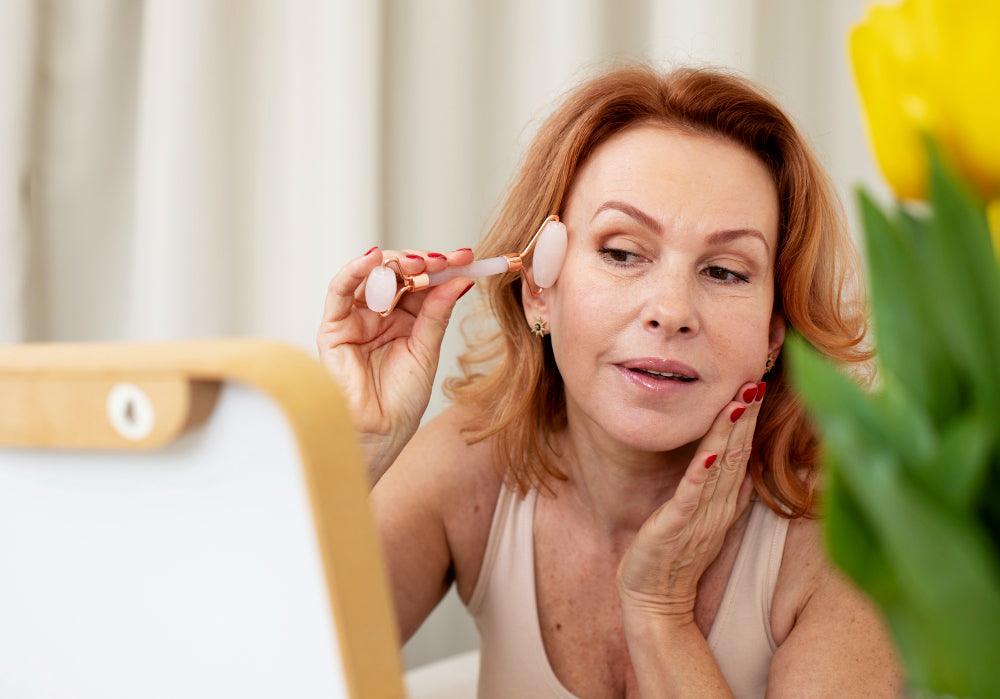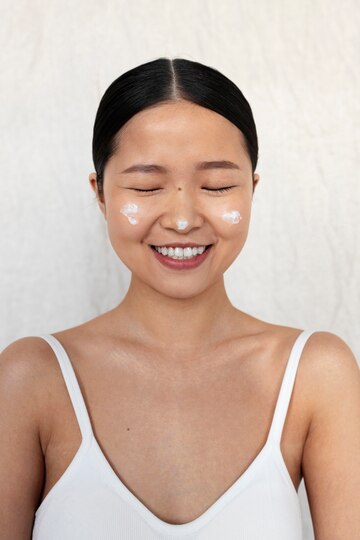When to Start Using Anti Aging Products?


In the realm of dermatology, the concept of anti-aging products has garnered significant attention. These products, ranging from serums to creams, are formulated to address the visible signs of skin aging. Dr. Emily Clarkson, a leading dermatologist, emphasizes, "Understanding when to incorporate anti-aging products into your skincare routine is as crucial as the products themselves." This statement underlines the central theme of our discussion: the criticality of timing in the usage of anti-aging products. The primary objective is not merely to use these products but to utilise them optimally based on individual skin requirements and age-related changes.
Skin aging is a biological process influenced by a combination of intrinsic and extrinsic factors. Intrinsic aging is governed by genetics and manifests as a gradual loss of skin elasticity and decreased cell turnover. Extrinsic aging, on the other hand, is driven by environmental factors such as UV exposure, pollution, and lifestyle choices including diet and smoking. Dr. Ahmed Patel, a researcher in dermatological science, notes, "Approximately 80% of facial aging is attributed to UV exposure." This statistic highlights the significant impact of environmental factors on skin aging. Understanding these factors is essential in the context of anti-aging products, as it guides the selection of products with ingredients tailored to combat specific aging processes.
The early signs of aging, such as fine lines, wrinkles, and diminished elasticity, are the first indicators that one might need to consider anti-aging products. However, the onset and intensity of these signs are highly individual. Factors such as skin type, genetics, and environmental exposure play a pivotal role. Dr. Lisa Nguyen, a dermatologist, explains, "Some individuals might notice fine lines in their mid-20s, while others might not see them until their 30s." This variability underlines the importance of a personalized approach to anti-aging skincare, aligning with the key theme of timely and tailored application of these products.
Preventative skincare involves using anti-aging products before the signs of aging become prominent, while reactive skincare addresses these signs post-emergence. Dr. Clarkson advocates for a preventative approach, stating, "Beginning with anti-aging products early can delay the onset of visible aging signs." This preventive strategy aligns with the core theme of our discussion – the judicious timing of anti-aging product use. It is about proactive skin care management rather than a reactive response to already visible signs of aging.
Determining the appropriate age to commence using anti-aging products is not a one-size-fits-all answer. Generally, the late 20s to early 30s is considered a practical time to start. However, as Dr. Patel points out, "Individual skin condition and history should dictate the initiation of anti-aging skincare rather than age alone." This perspective resonates with the article's key theme, emphasizing personalized skincare routines based on individual skin assessment rather than adhering strictly to age-based guidelines. It's about understanding one's skin and responding to its unique aging process with the right products at the right time.
In conclusion, the decision to start using anti-aging products is deeply personal and should be based on an understanding of one's skin and its aging process. Consulting with a dermatologist can provide tailored advice, ensuring that the use of these products is both timely and effective.
The market is replete with various anti-aging products, each boasting unique benefits. Serums, known for their concentrated active ingredients, are particularly effective. Creams, on the other hand, provide hydration along with anti-aging benefits. Dr. Susan Grey, a skincare specialist, notes, “Selecting the right product is contingent upon understanding its key ingredients and how they address aging concerns.”
The efficacy of these products largely hinges on their active components. Retinoids, derivatives of Vitamin A, are renowned for their ability to stimulate collagen production and accelerate cell turnover. Antioxidants, such as Vitamin C and E, combat oxidative stress caused by environmental aggressors. Peptides, small chains of amino acids, help in skin repair and rejuvenation. Understanding these ingredients is crucial in aligning product choice with specific skin aging concerns.
For those new to anti-aging skincare, it’s prudent to commence with milder formulations. Dr. Grey advises, “Starting with products having lower concentrations of active ingredients allows the skin to adapt without causing irritation.” Gradually, as the skin becomes accustomed, one can transition to stronger formulations. This phased approach is essential to avoid overwhelming the skin, thereby ensuring the effectiveness of the skincare regimen.
A holistic approach is vital in anti-aging skincare. Dr. Patel highlights, “Skincare is not just about products; it’s also about lifestyle choices like diet, hydration, and sun protection.” A balanced diet rich in antioxidants and sufficient water intake are fundamental for maintaining skin health. Sun protection, with regular use of sunscreen, is imperative in preventing premature aging. These lifestyle factors, coupled with a consistent skincare routine, enhance the effectiveness of anti-aging products.
The importance of seeking professional advice cannot be overstated in personalized skincare. Dermatologists provide tailored recommendations based on an individual’s skin type and concerns. Dr. Clarkson asserts, “A dermatologist can help navigate the vast array of products and choose those best suited for your skin.” Consulting a dermatologist is particularly advisable when starting with anti-aging products or when considering stronger formulations.
There are several misconceptions surrounding anti-aging products. A prevalent myth is that the earlier one starts using these products, the better. However, as Dr. Nguyen clarifies, “It’s not about starting early but starting right.” Overuse or premature use of these products can do more harm than good. Understanding the appropriate products and the right time to use them is more beneficial than simply adhering to the myth of ‘the earlier, the better.’
In summary, the journey to effective anti-aging skincare is a combination of choosing the right products, adopting a holistic lifestyle approach, and seeking professional guidance. It's imperative to debunk myths and understand that personalization is key in skincare. Readers are encouraged to approach anti-aging skincare thoughtfully, with a focus on their unique skin needs and conditions. Remember, effective skincare is not just about combating aging signs but about maintaining overall skin health and vitality.








Plus get the inside scoop on our latest content and updates in our monthly newsletter.